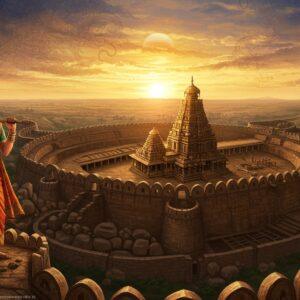
Adi Shankaracharya, a revered Indian philosopher and theologian of the 8th century, profoundly reshaped Hinduism. His teachings have deeply influenced modern Hindu thought and continue to inspire spiritual seekers today. This blog post delves into his key contributions, exploring his philosophical insights, impact on Hindu practices, and enduring legacy.
Historical Context and Philosophical Landscape
Understanding the Era of Adi Shankara
Adi Shankara emerged during a period of significant socio-political and religious transformation in India. Diverse schools of thought, including Buddhism and Jainism, thrived, leading to varied interpretations of the Vedas. Amidst this intellectual ferment, Shankara championed Advaita Vedanta, a non-dualistic philosophy emphasizing the unity of reality. For a deeper understanding of Hinduism’s core beliefs and practices, you can explore this insightful blog post: Exploring Hinduism: Core Beliefs and Practices.
Central Tenets of Advaita Vedanta
Advaita Vedanta posits that Brahman, the ultimate reality, is the sole truth, while the world we perceive is Maya, an illusion. Shankara’s logical arguments and rigorous debates solidified this philosophical stance, challenging dualistic interpretations of the Vedas. His teachings resonated deeply, offering a unified vision amidst diverse beliefs. You can further explore the profound influence of the Ramayana on Hindu spirituality in this article: Ramayana’s Influence on Hindu Spirituality.
Rise of Advaita Vedanta
Advaita Vedanta’s unifying message contributed to its widespread acceptance, becoming a cornerstone of Hindu philosophy. Shankara’s teachings re-established the authority of the Vedas and Upanishads, reinforcing Hindu identity. Discover how the Ramayana imparts valuable lessons on friendship, loyalty, and sacrifice: Ramayana: Friendship Lessons, Loyalty, and Sacrifice.
Adi Shankara’s Enduring Influence on Hinduism
Key Contributions and Influences
- Advaita Vedanta: Shankara systematized and popularized Advaita Vedanta, emphasizing the ultimate reality of Brahman and the identity of Atman (individual soul) with Brahman. This non-dualistic philosophy became a cornerstone of Hindu thought, shaping its understanding of reality and liberation. His interpretation of the Vedas and Upanishads through this lens revolutionized Hindu philosophical understanding.
- Critique of Ritualism: Shankara critiqued the overemphasis on rituals, advocating for Jnana (knowledge) and self-inquiry as paths to Moksha (liberation). He shifted the focus from external practices to inner transformation, emphasizing the importance of self-realization. This critique encouraged a deeper understanding of spiritual practices and their purpose.
- Establishment of Mathas: Shankara established four Mathas (monastic institutions) in Sringeri, Dwaraka, Puri, and Joshimatha. These centers became vital hubs for disseminating Advaita Vedanta, preserving Hindu traditions, and organizing religious leadership. These institutions continue to play a crucial role in Hindu religious life.
- Synthesis of Hindu Traditions: Shankara harmonized diverse Hindu traditions, integrating various deities into a unified system of worship. He is credited with popularizing the Panchayatan system, which venerates Ganesha, Adi Shakti Goddess, Shiva, Vishnu, and Surya, fostering a sense of unity within Hinduism. This synthesis brought together different strands of Hindu belief, promoting a more cohesive religious understanding. For a deeper look into the enduring influence of the Ramayana on Indian culture, visit: Ramayana’s Enduring Influence on Indian Culture.
- Reinterpretation of Scriptures: Shankara’s commentaries on the Upanishads, Bhagavad Gita, and Brahma Sutras provided accessible interpretations of complex Vedic texts. These commentaries unified Hindu philosophical foundations, making them accessible to a wider audience. His clear and insightful explanations helped clarify complex philosophical concepts, making them more readily understood.
- Promotion of Bhakti: While renowned for his philosophical work, Shankara also emphasized Bhakti (devotion). He composed hymns like Saundarya Lahari and Bhaja Govindam, blending spiritual wisdom with lyrical beauty. These devotional hymns enriched Hindu worship and provided a path to spiritual connection through devotion. For authentic puja items and spiritual tools, explore our collection: Gomti Chakra, Brass Hanuman Statue, Brass Ganesha Statue. You can also find Siddhi and Adi Aguru at Poojn.in.
- Defense of Sanatana Dharma: Shankara defended Hinduism (Sanatana Dharma) through rigorous debates and discussions. He championed Vedic philosophy and the concept of Brahman, establishing himself as a key figure in Hindu intellectual history. His defense strengthened Hindu identity and preserved its philosophical foundations.
Adi Shankara’s Legacy
Adi Shankara’s teachings continue to resonate with seekers of truth, illuminating the path to self-realization. His emphasis on the unity of existence and the potential for self-discovery remains deeply relevant to modern Hindus. His legacy as a philosopher, theologian, and reformer continues to shape Hindu thought and practice, inspiring generations of spiritual seekers.


